Hitman 2: Silent Assassin was the birth of everything that makes the series great
It's not much fun to play today, but it's the start of the series at its best.
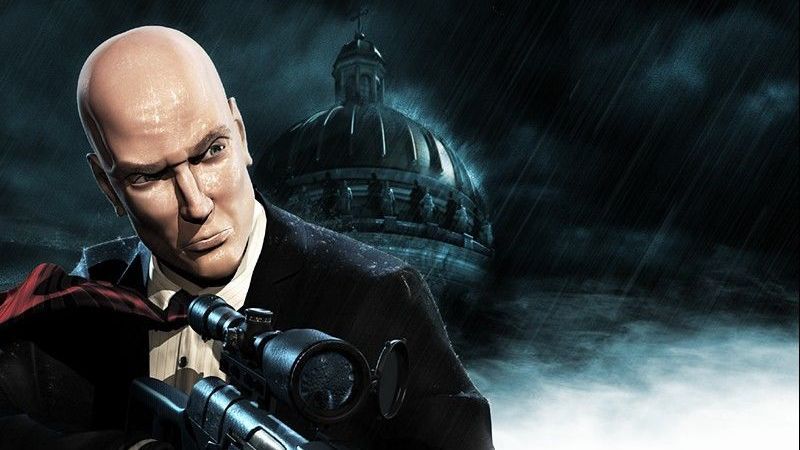
You can break up the Hitman series into a handful of distinct eras. There's the 'How the hell do we do this?' era. The 'Oh, actually, this is how we do this' era. And there's the 'Hey, look everyone, we really know how to do this now, but also we'll be switching publishers with each release because this industry is kind of a mess' era. Oh, right, and there's also Absolution.
Hitman 2: Silent Assassin was the start of the second era—a trilogy of games that took the raw promise of Hitman: Codename 47 and turned it into a classic series that would, with each release, come closer to realising the promise of its core idea. Released in 2002, Silent Assassin took the most appealing aspects of 47's first adventure, and honed in on the ideas that would help the series grow into some of the best stealth games you can play right now.
Above: In our Reinstall video series we take a fresh look at old games. So far we've covered the likes of Blade Runner, Max Payne, The Dig, and, uh, the Lost videogame. You can also watch the above video on YouTube.
The most important change to Hitman 2 is right there in its title: "Silent Assassin". The first Hitman game did penalise you for killing civilians, but otherwise you could be as loud as you wanted. You could go for a more stealthy approach, but it was entirely for your own gratification—the game not caring if you killed just your target, or every hostile guard along the way. And in most instances, being super stealthy would just make things much harder for yourself.
Silent Assassin changed this thanks to its new rating system. You can still go in guns blazing—in fact, replaying the game, I'm surprised how viable an option it is. 47 is far tankier than I remembered, able to take down a small army with health left to spare. But do so and the game will give you a 'Mass Murderer' rating, and you'll feel bad because deep down you know it's not what a professional Hitman should do.
Instead, you're encouraged to get in and out with almost no trace, killing almost no-one except your target. There's some nuance to the system here. You are allowed to kill one other person—even a civilian if you don't raise any alarms—meaning there's always an easy way to get at least one disguise to take you through the level. But mostly you need to be clean and quiet. Just firing a gun can raise your aggression meter and deny you a Silent Assassin rating—even if it's a silenced pistol fired harmlessly at nothing. It means every obstacle needs careful consideration. If you kill a guard early, you won't be able to later on—even if things get tricky.
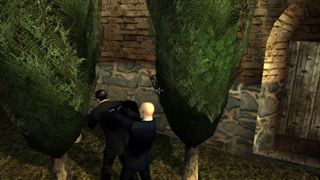
Hitman 2: Silent Assassin also added an option for a non-lethal takedown, which you'd think would make the silent approach much easier, but in practice it hinders more than it helps. Unlike in the recent Hitman trilogy, here anaesthetised guards will eventually wake up, and, when they do, you're in trouble: because they will somehow know where you are.
The biggest gaming news, reviews and hardware deals
Keep up to date with the most important stories and the best deals, as picked by the PC Gamer team.
Having played the early Hitman games when they first released, I always knew the AI was a bit messy. But replaying now, having experienced all the improvements of IO's recent games, even I was surprised at just how ludicrous their behavior can be.
For instance: whoever said that the definition of insanity is doing the same thing over and over again and expecting a different result clearly never played Silent Assassin, which is less about trial-and-error as it is trial-and-the-same-trial-again-but-this-time-maybe-it-will-work.
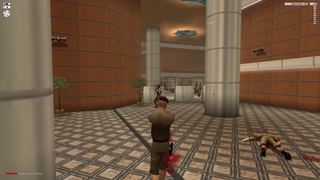
The main culprit here is the suspicion meter, which was another new feature for Silent Assassin. About the nicest thing I can say about it is that I can see what IO were trying to do. 47's disguises aren't perfect—he's still a bald guy with a barcode on the back of his head—so the possibility of being rumbled does add some tension to a level.
But it's wildly inconsistent. Sometimes a guard will spot you as you pass them in a corridor. But if you reload and walk down the same corridor in the same way, they'll let you go about your murderous business. And god help you if anyone catches you running. A quick jog and the guns are immediately drawn. What if 47 just really needed a bathroom break? This is no way to run a workplace.
That certain characters have an easier time identifying 47 suggests that there is some logic to how suspicion works, but good luck figuring it out as you play. The upshot is it's a very frustrating game, where every new guard encounter could ruin your plan for no reason you can hope to identify. Stealth in Silent Assassin is more of an awkward dance, of hugging walls, and backtracking, and skirting around enemies in the hope that they won't think that you don't belong. And if you really want to stay safe, you're forced to do a lot of walking; a lot of crouch-walking; a lot of huddling in a quiet corner, watching as icons on the real-time map flit about, waiting for an opening.
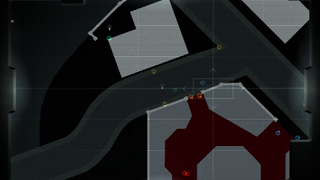
Both Contracts and Blood Money used a vastly more forgiving version of the same system. But newer Hitman games are much more transparent about who can see you or not. A UI indicator outright tells you if a guard can see through your disguise. And while it doesn't make much sense that 47 would instinctively know this, it sure removes a lot of the frustration.
Hitman's latest trilogy is more clean and clinical than these old games, precisely because of how much information you're given upfront. They're less chaotic as a result, letting you plan and execute based on a known set of variables that behave consistently. They're more accessible too—the chokehold in particular providing an easier and always reliable non-lethal takedown option that honestly might be a little too forgiving.
Silent Assassin, in contrast, is far more chaotic and obtuse. It's an annoying game, but—partly because of that—a more thematically interesting one too. There's an added tension and mystery, although—based on the many downsides—I think IO were probably right to leave this style behind.
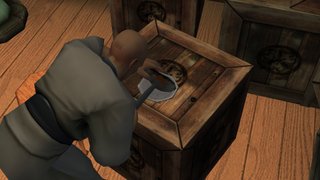
Silent Assassin's biggest achievement is its use of sandbox environments to create open-ended levels that offer a variety of different approaches and takedowns. Codename 47 was far more restrictive, but Silent Assassin has some real gems. The best is still its opening mission in a Sicilian villa, where 47 uses his binoculars to case out his surroundings. Do you disguise yourself as a postman and enter through the main gate? Or dress as the delivery boy and stash a weapon in his crate? Or even snag the sniper rifle from the garage to take out Don Giuseppe from afar?
It's far smaller than any modern Hitman sandbox, and most of Silent Assassin's 21 missions are far more linear in approach—like the St. Petersburg hit that requires you to snipe a specific target in a room full of generals, or the two truly terrible missions that have you climbing a mountain in order to infiltrate a castle in Japan, dodging snipers that will shoot you for seemingly no reason, even when you're disguised.
Only a handful of missions feel like proper, open-ended sandboxes, but the ones that do stick around in the memory. This was the first Hitman game that let you use an improperly prepared fugu fish to kill someone—a trope that the series has gone back to a few times since. Much of Silent Assassin isn't very fun to play today, but in its best moments it contains everything that's still great about the series. IO successfully drew on the winning ideas of Silent Assassin, cut away the stuff that didn't quite work, and—in doing so—made the formula for an amazing series of assassination sandboxes that we're still playing today.

Phil has been writing for PC Gamer for nearly a decade, starting out as a freelance writer covering everything from free games to MMOs. He eventually joined full-time as a news writer, before moving to the magazine to review immersive sims, RPGs and Hitman games. Now he leads PC Gamer's UK team, but still sometimes finds the time to write about his ongoing obsessions with Destiny 2, GTA Online and Apex Legends. When he's not levelling up battle passes, he's checking out the latest tactics game or dipping back into Guild Wars 2. He's largely responsible for the whole Tub Geralt thing, but still isn't sorry.
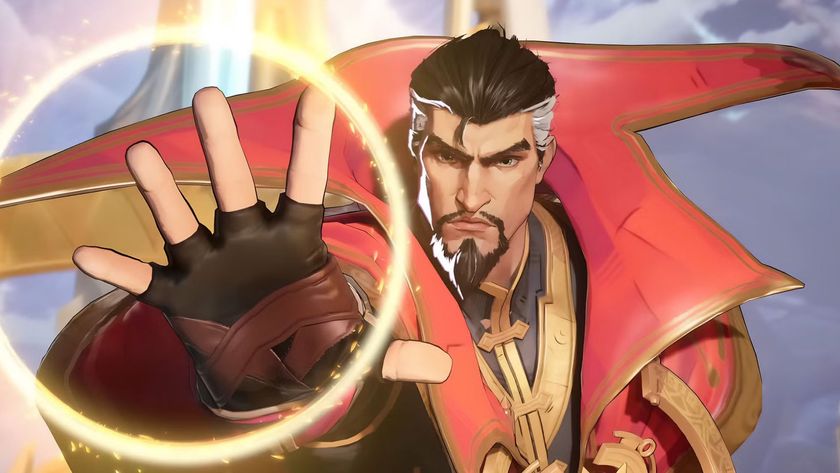
Doctor Strange's portals were 'particularly challenging' to add into Marvel Rivals, as they created 'unprecedented performance demand' for Unreal Engine 5
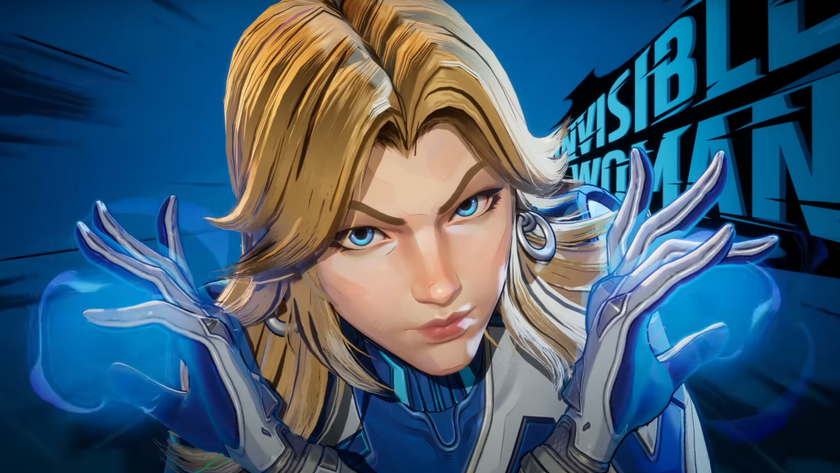
Marvel Rivals' ranked distribution for Season 1 is pretty evenly spread except for the 482,526 players just sat in Bronze 3
Most Popular







